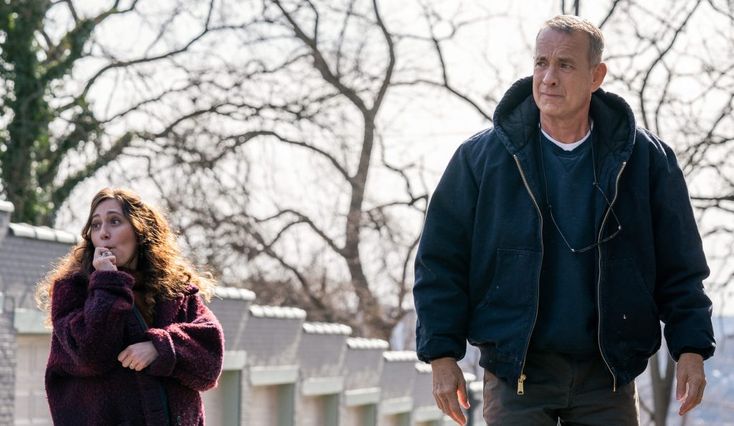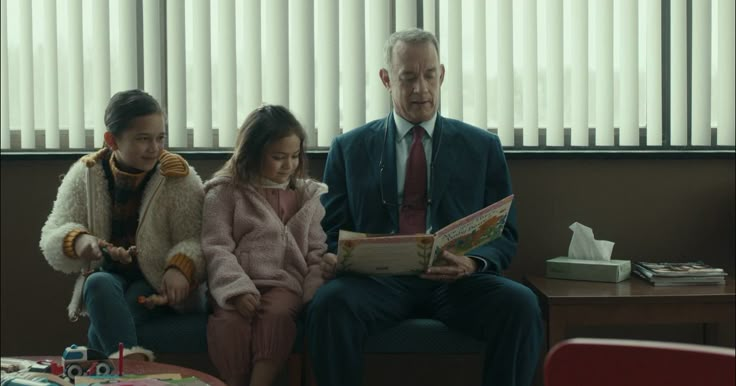A Man Called Otto
Tom Hanks as a grump old man with a death wish - until life stubbornly pulls him back. Can kindness heal a broken soul? Otto's story might just surprise you.
MOVIE REVIEW
Shreyash Manral
4/2/20254 min read


The title must seem familiar to you. You’re absolutely right! It is the cinematic adaptation of the book A Man Called Ove. For those who are not fans of reading—though I’d highly recommend giving it a shot—you can experience the story from the comfort of your couch or bed.
We’ve all come across that one stubborn, frowning old man who seems to hate seeing others have fun. As I write this, I can’t help but relive my younger days, when the biggest predicament was deciding who would take responsibility for knocking on the grumpy old man’s door to ask for our lost ball. This is a story of one such man—one who has lost the will to live, to say the least. He finds pleasure in nothing and keeps his irritation at the very tip of his nose, so much so that even a breeze can set him off.
The first ten minutes of the movie introduce us to the character of Otto Anderson, a 63-year-old man who has lost all motivation to live after the tragic death of his beloved wife. The loneliness and emptiness have transformed the once warm and pleasant man into a grumpy, senile version of himself. Is that a norm? Emotions are what make a man, and emotions are what break a man. As kids, we never questioned why someone was grumpy; it was easier to see them as villains who didn’t want us to play. But as we grow and understand the world better, we begin to see beyond the surface.
Otto has a burning desire within him—something akin to the drive Rocky Balboa had for winning the heavyweight title. The difference? Otto's burning desire is to die. You heard me right. The man buys a rope, and you’d think, “Why?” only to later see him tying it to a fan. How many things could one do with that? Of course, he wanted to swing like a six-year-old in the comfort of his house, reliving the days of pure joy. (Wink, wink!)
And the award for shortest run-time goes to… NO! WAIT!
Otto’s attempt is interrupted—drum rolls—when his new neighbor, Marisol, knocks on his door with food as a thank-you for helping her earlier that day. The poor guy, not wanting to waste the food, decides to postpone his plans. Mind you, Otto is not some helpless old man sulking in a corner. He is a capable, meticulous executioner who has found a way to help himself, and without any remorse, he wishes to proceed with it. Yet here he seems conflicted. Of course, he would be—it’s not as simple as buying a suit.
Otto’s new neighbors play a major role in his journey—Marisol, her husband Tommy, and their two young daughters. This family becomes the guiding light that pulls Otto out of his misery. Despite his cold demeanor, Marisol refuses to be put off. She asks him to help with small tasks—fixing a window, lending tools, and even teaching her how to drive. Though he grumbles, Otto helps her each time. Slowly, a bond begins to form between them.
Still grieving, Otto makes another attempt to end his life, this time by inhaling exhaust fumes. However, he is once again interrupted—this time by old friends Anita and Reuben, who need help fighting an eviction. Another failed attempt. At this point, it becomes clear that Otto just loves helping others, no matter how irksome it may seem to him. This habit follows from his years of caring for his wife, Sonya, after she was paralyzed in an accident. He later takes in a stray cat, softening his tough exterior—much to Marisol's amusement. This marked a shift to Otto’s dying need to—die!
Otto unexpectedly becomes a local hero when he rescues a man who falls onto the train tracks. His involvement in his neighbors’ lives grows deeper—he helps Marisol when she goes into labor, drives her to the hospital, and even leads the fight against the real estate company trying to evict residents. In doing so, he finds a renewed sense of purpose—the kind that his wife, Sonya, would have wanted him to embrace rather than throw away.
It’s beautiful to think about how the rarest things—genuine help when someone truly needs it—can make a person whole again. It can remove the hollowness inside and give them a reason to set their life back on track. Perhaps Otto was simply bored of sitting alone at home. Who wouldn’t be? I can’t even stay put during holidays—I always look for some activity rather than sitting idle. Maybe that was an even greater sorrow than the loss of the love he cherished most—not to undermine it, of course.
But life has a strange way of unfolding. When you expect misfortune at every turn, it doesn’t happen. And then, when you least expect it—when everything seems to be falling into place—it does.
Otto, who tried so hard to end his life and failed at every attempt, finally found a purpose. He was happy, a part of Marisol’s family, enjoying the warmth of companionship once again. And that’s when life took its final turn—he silently passed away from heart failure. It wasn’t a surprise, he knew about it and Marisol did as well. Otto was prepared, he left a letter for Marisol expressing a deep sense of gratitude for making him whole again, and as an extension of the gesture, left his property in her name.
But maybe that’s just life.
We chase endings we think we deserve, yet life has a way of writing its own script. Otto spent so much time preparing for death, only to be pulled back into life. And just when he finally let go of grief and embraced living again—life, in its quiet irony, took him away.
Perhaps Otto's story isn’t about death at all. It’s about rediscovering meaning, about how even the most broken souls can be mended with kindness. And maybe, just maybe, it’s a reminder that purpose finds us when we least expect it.


